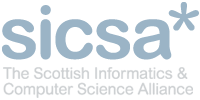Date/Time
Date(s) - 11/08/2021
2:00 pm - 5:00 pm
The transition to a Net Zero North Sea demands cleaner, smarter operations. This workshop presents case studies from a range of industries.
About this event
- Introduction: Christopher Pearson, Director, National Subsea Centre
- Keynote: Smart Subsea, Prof. Enrique Alba, University of Malaga, Spain
- Case Study: Prof. Li Zhang, National Subsea Centre
- Case Study: Dr. Alexander Brownlee, University of Stirling
- Case Study: Prof. John McCall, National Subsea Centre
- Virtual Attendee Symposium: GatherTown
Case Study 01: Evolving Deep Neural Networks for Industrial Optimization, Prof. Li Zhang, National Subsea Centre
Evolutionary algorithms have demonstrated superior global search capabilities, and have been applied to diverse real-life single, multi, and many-objective optimization problems. Examples include the use of evolutionary algorithms for optimal parameter identification, evolving deep architecture generation and discriminative feature selection pertaining to diverse classification and regression models as well as hybrid evolutionary and clustering algorithms for image segmentation and visual saliency detection. This talk will make exploration of the above research topics and introduce algorithms and applications of evolutionary computation in solving diverse industrial optimization problems.
Case Study 02: Intelligent systems to improve aircraft taxiing efficiency, Dr. Alexander Brownlee, University of Stirling
Taxiing remains a major bottleneck at many airports, even considering reduced traffic levels over the past year. Aircraft are designed for efficiency when airborne so taxiing also has a disproportionate environmental impact. Intelligent traffic management systems are thus needed. Recently, several approaches to allocating efficient routes for taxiing aircraft have been proposed. Search-based optimisation combined with conflict-free routing algorithms are able to efficiently allocate routes. These algorithms are supported by machine learning to make accurate predictions of the time taken to traverse each segment of the taxiways. This talk will summarise some recent work on this topic.
Case Study 03: Optimised Management of a Large Field Service Workforce, Prof. John McCall, National Subsea Centre
The management of a large field service workforce is a complex task involving many trade-offs. To meet service levels, managers must match labour force to projected demand for planned work subject to mixed skill requirements, team organisation, contractual constraints on roster patterns and the uncertainty of unplanned work to maintain service availability. This talk shows how optimisation and learning approaches enabled efficient management of a 25K-strong workforce in a large service company, realising benefits in the form of cost savings and avoided service penalties.
Register via Eventbrite.







